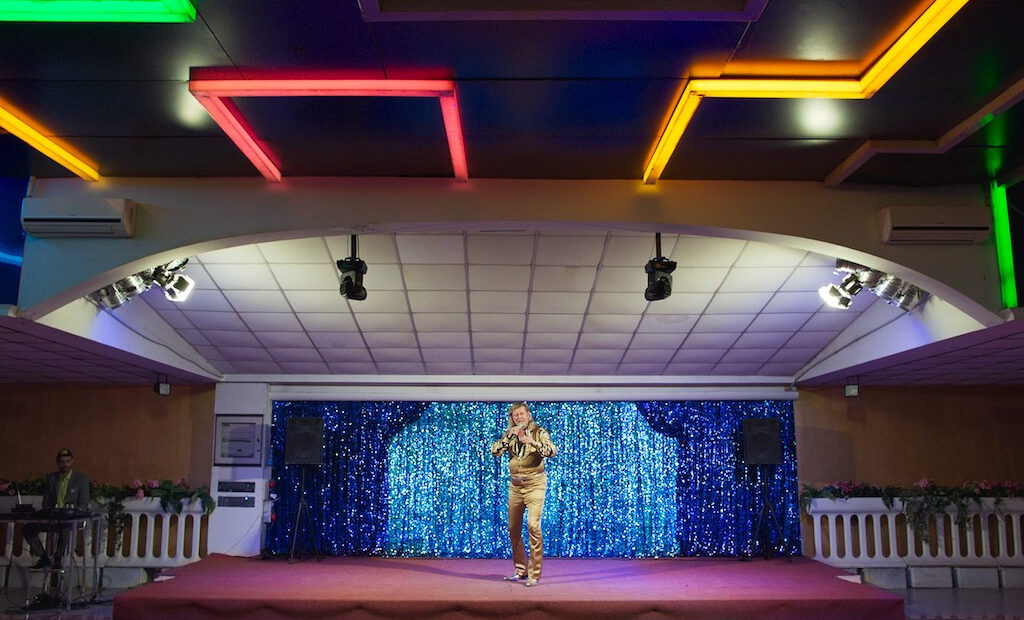Rimini

Richy Bravo is an over-the-hill Schlager singer, who performs for off-season tour groups in his adoptive home of Rimini. He boosts his meagre fees by prostituting himself to his fans. Apart from his mother’s funeral, for which Richy briefly returns to Austria, he only visits his dementia-stricken father to steal money from him. After one of his gigs he approaches a woman, whose youthful appearance stands out amidst the usual demographic of his audience. Appalled, she walks away. But she returns the following day and reveals herself as his estranged daughter, who has come to collect her dues.
It is director Ulrich Seidl’s second time competing for the Golden Bear after Paradise: Hope premiered during 2013’s Berlinale. His penchant for blurring the lines between documentary and fiction resurfaces in Rimini. Often, there are static wide shots that capture environment and space, along with the goings-on. Then, during dialogue, the camera moves to handheld and draws closer. The characters are unsanitised, conversations held in thick accents, at times arguments become repetitive, because in real life people don’t try to reason with eloquence. The film’s sex scenes are captured in unsettling detail to the point of vulgarity, the bodies depicted a far cry from the cinematic standard.
This unapologetic naturalism and willingness to lay bare a person’s ugliest parts carries a disadvantage, however: if virtually repulsed by a character and their actions, what incentive would the viewer have to put themselves into their shoes?
The choice of location is the film’s visual draw. Rimini, a city on the Adriatic coast, congested with tourists in the summer, becomes a forlorn wasteland as the weather turns cold.
Actor and singer Michael Thomas plays the slimy, conceited protagonist to a T. Georg Friedrich makes a brief appearance as Richy’s brother, and delivers a comedic high point, as the two men blunderingly prompt the priest’s eulogy.
The film’s most poignant moments concern Richy’s father in his nursing home. It was actor Hans-Michael Rehberg’s last film – he passed away shortly after completing his scenes in 2017.
During the introduction of the 72nd Berlinale’s jury members, the participants discussed if artistic creations, so-called “festival films”, had finally become mainstream. Rimini is evidence to the contrary. Without a festival embracing the unconventional and the unpleasant, it is unlikely that a daring production like this would find an audience.
Selina Sondermann
Rimini does not have a UK release date yet.
Read our interview with Ulrich Seidl here.
Read more reviews from our Berlin Film Festival 2022 coverage here.
For further information about the event visit the Berlin Film Festival website here.

























Facebook
Twitter
Instagram
YouTube
RSS